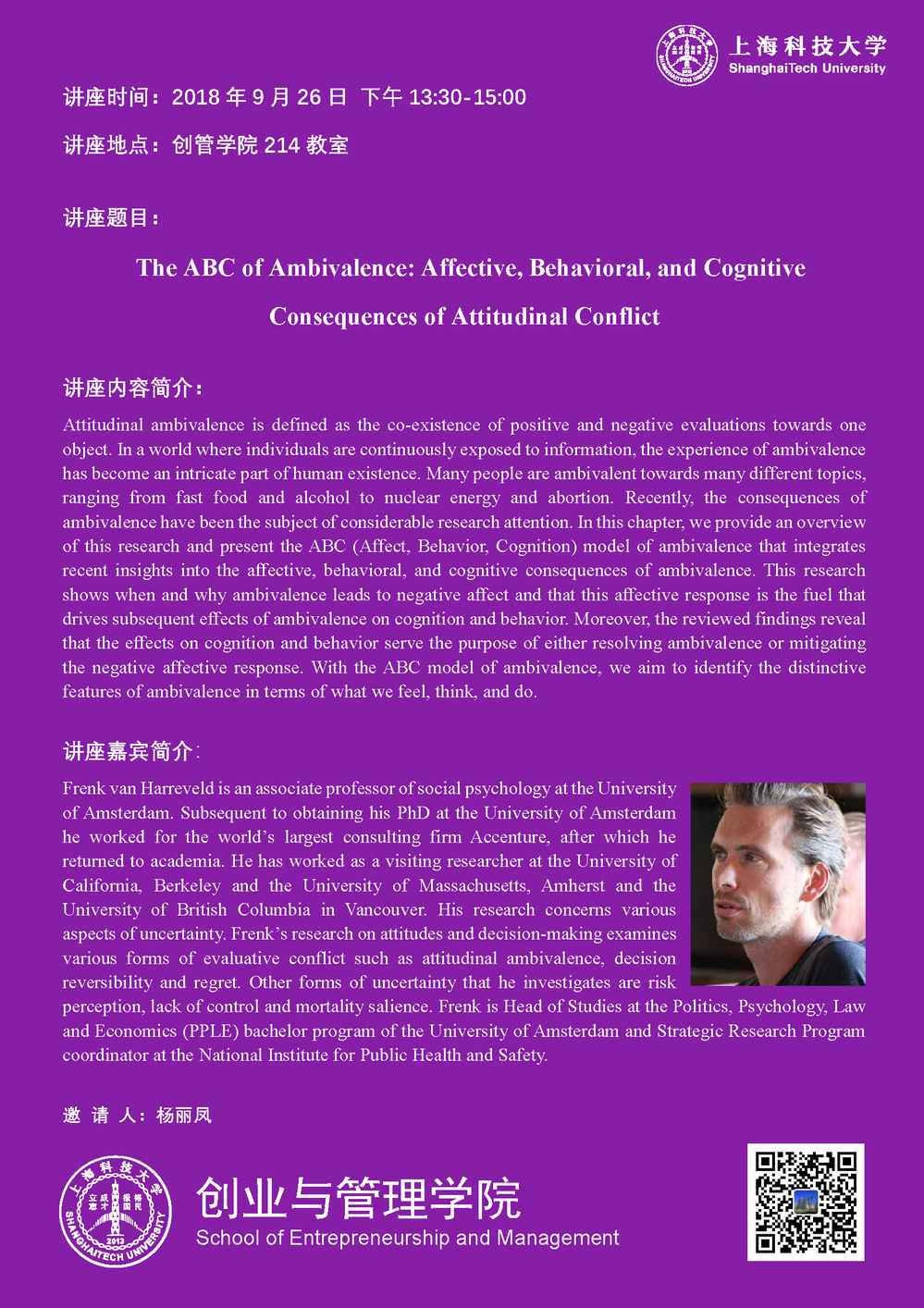讲座时间:2018年9月26日 下午13:30-15:00
讲座地点:创管学院214教室
讲座嘉宾:Frenk van Harreveld博士(阿姆斯特丹大学)
邀请人:杨丽凤
讲座内容简介:
Attitudinal ambivalence is defined as the co-existence of positive and negative evaluations towards one object. In a world where individuals are continuously exposed to information, the experience of ambivalence has become an intricate part of human existence. Many people are ambivalent towards many different topics, ranging from fast food and alcohol to nuclear energy and abortion. Recently, the consequences of ambivalence have been the subject of considerable research attention. In this chapter, we provide an overview of this research and present the ABC (Affect, Behavior, Cognition) model of ambivalence that integrates recent insights into the affective, behavioral, and cognitive consequences of ambivalence. This research shows when and why ambivalence leads to negative affect and that this affective response is the fuel that drives subsequent effects of ambivalence on cognition and behavior. Moreover, the reviewed findings reveal that the effects on cognition and behavior serve the purpose of either resolving ambivalence or mitigating the negative affective response.
With the ABC model of ambivalence, we aim to identify the distinctive features of ambivalence in terms of what we feel, think, and do.
讲座嘉宾简介:
Frenk van Harreveld is an associate professor of social psychology at the University of Amsterdam. Subsequent to obtaining his PhD at the University of Amsterdam he worked for the world’s largest consulting firm Accenture, after which he returned to academia. He has worked as a visiting researcher at the University of California, Berkeley and the University of Massachusetts, Amherst and the University of British Columbia in Vancouver. His research concerns various aspects of uncertainty. Frenk’s research on attitudes and decision-making examines various forms of evaluative conflict such as attitudinal ambivalence, decision reversibility and regret. Other forms of uncertainty that he investigates are risk perception, lack of control and mortality salience. Frenk is Head of Studies at the Politics, Psychology, Law and Economics (PPLE) bachelor program of the University of Amsterdam and Strategic Research Program coordinator at the National Institute for Public Health and Safety.




